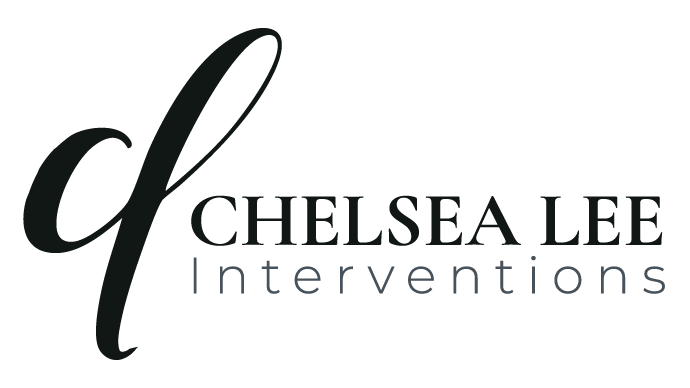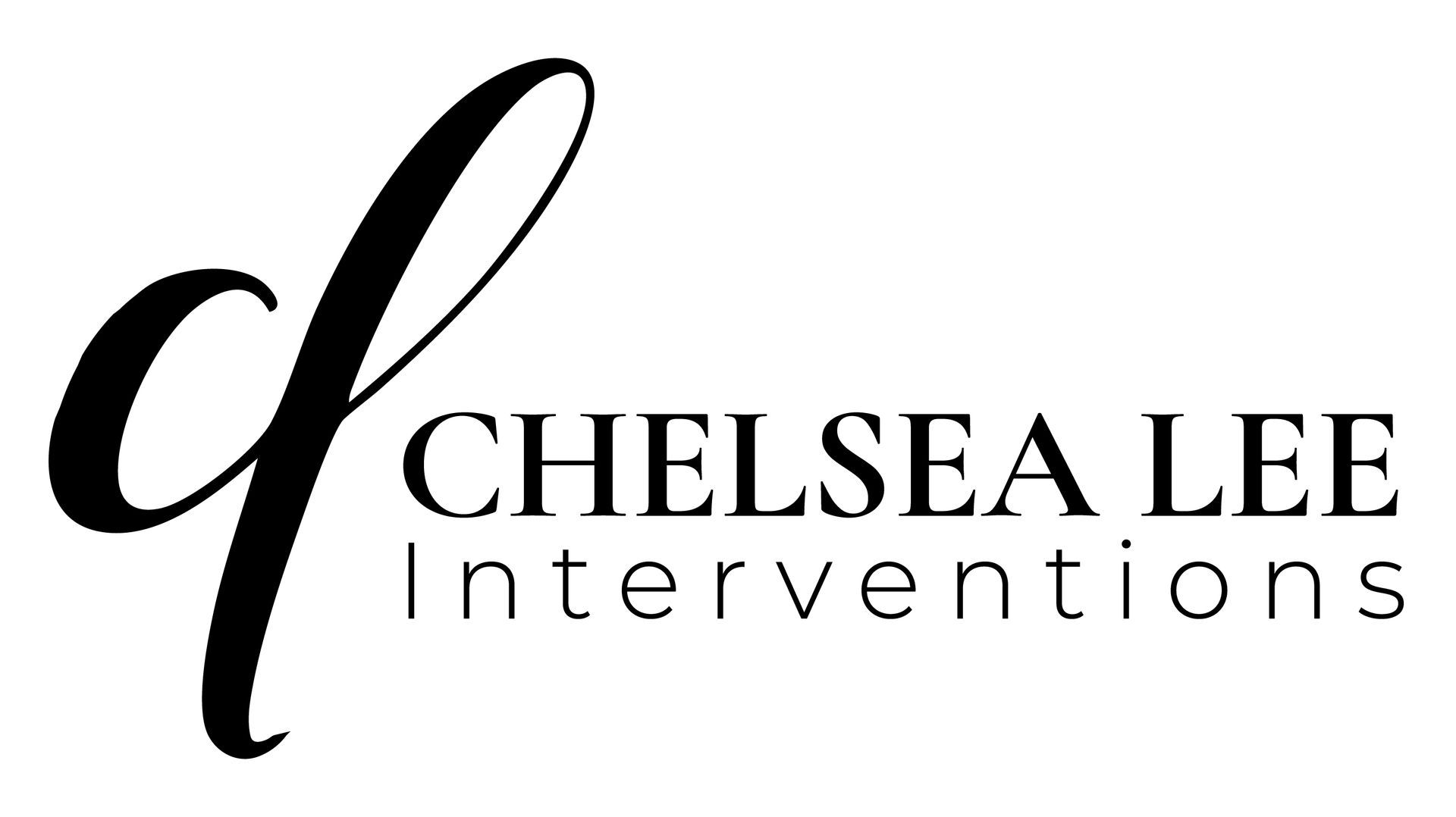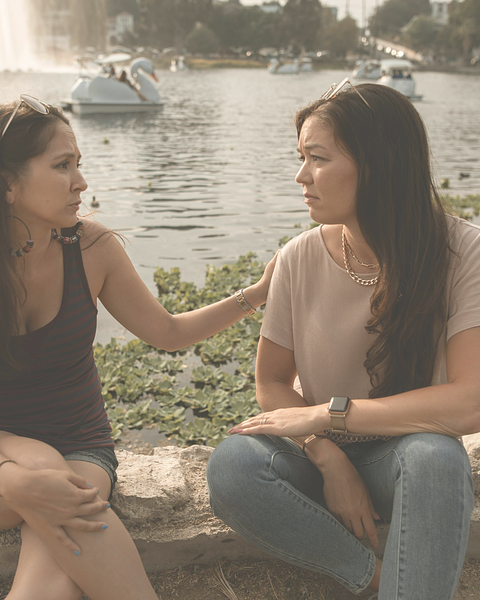Women Interventionist Services Vancouver: The Power of Female-Led Addiction Intervention

When someone you love is struggling with addiction or destructive behavior, choosing the right interventionist can make the difference between success and failure. While professional qualifications and experience are essential, the human connection and approach matter equally. Women interventionist services in Vancouver offer a unique combination of clinical expertise, emotional intelligence, and trauma-informed care that can transform the intervention experience for families and individuals facing addiction challenges.
Article Outline: Understanding the Benefits of Women Interventionist Services
In this comprehensive guide, you'll discover why women interventionist services provide distinct advantages in addiction intervention, learn how female interventionists create safer spaces for healing, understand the trauma-informed approach that sets women practitioners apart, and explore how gender-specific intervention strategies improve success rates. We'll examine the unique benefits for both male and female clients, address common misconceptions about gender in intervention work, and provide practical guidance for families seeking professional interventionist support in Vancouver and across British Columbia.
The Unique Strengths of Women Interventionist Services in Addiction Recovery
Women interventionist services bring distinctive qualities to addiction intervention that complement traditional approaches while offering enhanced emotional safety and connection. Research in addiction treatment consistently shows that the therapeutic relationship significantly impacts treatment outcomes, and female interventionists often excel at building these crucial connections with clients and families.
Female interventionists typically approach addiction intervention with heightened emotional intelligence and intuitive understanding of family dynamics. This natural ability to read subtle emotional cues and respond appropriately helps create an environment where honest communication can flourish, even in high-stress intervention situations.
The presence of a female interventionist often brings a calming, non-threatening energy to intervention meetings. Many families report feeling more comfortable expressing vulnerability and sharing difficult emotions when working with women interventionist services. This comfort level proves crucial during intervention processes, where trust and openness determine success.
Women interventionist services also excel at facilitating complex family conversations where multiple perspectives and emotions need careful navigation. Female interventionists often demonstrate exceptional skill at helping family members feel heard while maintaining focus on the primary goal of motivating their loved one toward addiction treatment.
Many women working in intervention services bring lived experience with addiction, either personally or within their families, which adds authenticity and deep understanding to their professional expertise. This combination of personal insight and clinical training creates a powerful foundation for effective intervention work.
Creating Emotional Safety: How Women Interventionist Services Support Trauma-Informed Care
Trauma-informed care represents a fundamental shift in how addiction intervention is approached, recognizing that many people struggling with addiction have underlying trauma that requires careful, sensitive handling. Women interventionist services often excel at implementing trauma-informed approaches that prioritize emotional safety and empowerment over confrontation and pressure.
Female interventionists understand that addiction frequently stems from attempts to cope with unresolved trauma, particularly for individuals who have experienced abuse, neglect, or other traumatic life events. Women interventionist services approach these situations with enhanced sensitivity to triggers and trauma responses that might emerge during intervention conversations.
The non-judgmental, empathetic approach characteristic of many women interventionist services helps create a safe space where individuals feel heard rather than attacked. This emotional safety proves essential for people whose addiction may be connected to feelings of shame, fear, or past victimization.
Women interventionist services often demonstrate particular skill at recognizing when someone is becoming overwhelmed or triggered during intervention meetings and can adjust their approach accordingly. This flexibility and responsiveness help maintain the therapeutic connection while continuing to work toward treatment acceptance.
Female interventionists frequently emphasize collaboration and choice rather than ultimatums and demands, which aligns with trauma-informed principles that prioritize personal agency and empowerment. This approach often leads to better long-term outcomes because individuals feel they're participating in their recovery rather than being forced into it.
Supporting Women in Addiction: Gender-Specific Benefits of Female Interventionist Services
Women struggling with addiction face unique challenges that women interventionist services are particularly well-equipped to address. Female clients often respond more positively to intervention when they feel understood by someone who shares their gender experience and can relate to women-specific addiction issues.
Many women develop addiction as a coping mechanism for trauma, particularly sexual abuse, domestic violence, or other gender-based violence. Women interventionist services provide a safer environment for discussing these sensitive topics and addressing how trauma contributes to addictive behaviours.
Female clients frequently struggle with shame and self-blame related to their addiction, especially when children are involved or when their substance use conflicts with societal expectations of women and mothers. Women interventionist services offer understanding and support that helps address these gender-specific shame issues.
Women interventionist services also understand the unique barriers women face in accessing addiction treatment, including childcare concerns, financial dependence, fear of legal consequences, and lack of family support. Female interventionists can help address these practical obstacles while motivating treatment engagement.
The presence of a successful, professionally trained woman in recovery leadership provides powerful role modelling for female clients. Women interventionist services demonstrate that recovery is possible and that women can reclaim their strength, independence, and well-being through appropriate treatment and support.
Research shows that women often prefer treatment environments that feel emotionally safe and supportive rather than confrontational or aggressive. Women interventionist services naturally create these preferred conditions, leading to higher success rates in motivating female clients toward addiction treatment.
How Women Interventionist Services Support Male Clients: Breaking Down Misconceptions
A common misconception suggests that men only connect well with male interventionists, but many men actually benefit significantly from working with women interventionist services. Understanding why this works requires examining how gender dynamics and attachment patterns influence addiction recovery.
Many men struggling with addiction carry unresolved attachment trauma related to male authority figures, absent fathers, aggressive coaches, emotionally distant role models, or abusive relationships with male family members. For these individuals, women interventionist services can provide a corrective emotional experience that feels safer and less threatening.
Women interventionist services often create an environment where male clients feel more comfortable expressing vulnerability and emotional pain. The non-threatening presence of a skilled female interventionist can help men access feelings and experiences they might defend against when working with male practitioners.
Female interventionists frequently excel at providing the kind of nurturing, supportive presence that many men struggling with addiction never experienced in their formative relationships. This therapeutic reparenting can be profoundly healing and motivating for men whose addiction stems from early attachment wounds.
Women interventionist services also model healthy female relationships for men whose addiction may be connected to difficulties with women in their lives, romantic partners, mothers, daughters, or female colleagues. Working successfully with a professional woman can improve overall relationship patterns.
Male clients often report feeling less judged and more accepted when working with women interventionist services, particularly around issues of shame, failure, or emotional expression that conflict with traditional masculine expectations. This acceptance creates space for honest conversation about addiction and recovery.
The Intervention Process: How Women Interventionist Services Create Lasting Change
Women interventionist services approach the intervention process with careful attention to relationship building, emotional safety, and collaborative problem-solving. Understanding this process helps families prepare for what to expect when working with female intervention specialists.
Initial consultation with women interventionist services typically involves extensive listening and validation of family concerns before moving into planning and strategy development. Female interventionists often spend significant time understanding family dynamics, communication patterns, and the emotional landscape surrounding the addiction.
Women interventionist services excel at family preparation, helping each participant understand their role while addressing fears, concerns, and resistance that family members may have about the intervention process. This thorough preparation often leads to more successful outcomes because everyone feels prepared and supported.
During intervention meetings, women interventionist services maintain focus on love, concern, and hope rather than blame, punishment, or ultimatums. Female interventionists often demonstrate exceptional skill at keeping conversations productive even when emotions run high or when the individual becomes defensive.
Women interventionist services also prioritize follow-through and ongoing support after initial intervention meetings. Female interventionists understand that sustainable change requires continued guidance and support throughout the early stages of treatment and recovery.
The collaborative approach characteristic of women interventionist services often results in better long-term outcomes because individuals feel they've participated in choosing their recovery path rather than having it imposed upon them. This sense of agency and partnership proves crucial for sustained motivation in addiction treatment.
Trauma-Informed Intervention: Addressing Root Causes with Compassion
Women interventionist services often lead the field in implementing trauma-informed intervention approaches that address underlying causes of addiction rather than simply focusing on substance use behaviours. This comprehensive approach leads to more effective and lasting recovery outcomes.
Understanding that addiction frequently develops as a coping mechanism for unresolved trauma, women interventionist services approach each situation with curiosity about what pain the addiction might be helping someone manage. This perspective shift from "what's wrong with you" to "what happened to you" creates space for healing.
Women interventionist services recognize that confrontational or aggressive intervention approaches can retraumatize individuals whose addiction stems from trauma. Instead, female interventionists use gentle, supportive methods that prioritize emotional safety while still maintaining clear boundaries and expectations.
The trauma-informed approach used by women interventionist services also extends to family members, recognizing that living with someone's addiction creates secondary trauma that needs addressing. Female interventionists often provide support and resources for family healing alongside individual intervention services.
Women interventionist services understand that trauma affects the nervous system in ways that impact how people respond to stress, confrontation, and change. Female interventionists adjust their approach based on trauma responses they observe, using techniques that help regulate the nervous system rather than activating fight-or-flight responses.
This sophisticated understanding of trauma and its relationship to addiction allows women interventionist services to create intervention experiences that feel safe enough for real change to occur. When people don't feel threatened or attacked, they're more likely to consider new possibilities and accept help.
Vancouver's Mental Health and Addiction Support: Integrating Women Interventionist Services
Vancouver and British Columbia offer extensive mental health and addiction support services, and women interventionist services play an important role in connecting individuals and families with appropriate treatment options throughout the province.
Women interventionist services in Vancouver maintain relationships with treatment centres, counsellors, and addiction specialists throughout British Columbia, including facilities in the Lower Mainland, Maple Ridge, Langley, and other communities. This network allows female interventionists to match individuals with treatment approaches that best fit their specific needs.
The diverse treatment landscape in British Columbia includes residential programs, outpatient services, wellness centres, and specialized programs for different populations. Women interventionist services help families navigate these options while considering factors like gender preferences, trauma history, family dynamics, and practical considerations.
Vancouver's emphasis on culturally sensitive and trauma-informed addiction treatment aligns well with the approach used by women interventionist services. Female interventionists often excel at helping individuals access treatment that feels safe and appropriate for their cultural background and personal needs.
Women interventionist services also understand the importance of ongoing support throughout the recovery process. Female interventionists help coordinate aftercare planning, family therapy, peer support groups, and other resources that support lasting change in addiction recovery.
The integration of women interventionist services with Vancouver's broader addiction treatment system creates comprehensive support that addresses both immediate intervention needs and long-term recovery planning for individuals and families across British Columbia.
When someone you love is struggling with addiction or destructive behavior, choosing the right interventionist can make the difference between success and failure. While professional qualifications and experience are essential, the human connection and approach matter equally. Women interventionist services in Vancouver offer a unique combination of clinical expertise, emotional intelligence, and trauma-informed care that can transform the intervention experience for families and individuals facing addiction challenges.
Building Trust and Connection: The Relationship-Centered Approach
Women interventionist services typically excel at building the kind of therapeutic relationships that form the foundation of successful intervention and lasting addiction recovery. Understanding how female interventionists create these connections helps families appreciate the unique value of working with women practitioners.
Female interventionists often demonstrate exceptional ability to create emotional attunement with clients, helping individuals feel truly seen and understood rather than judged or pathologized. This attunement proves crucial for people whose addiction may stem from feeling disconnected or misunderstood in their important relationships.
Women interventionist services frequently emphasize collaboration and partnership rather than expert-to-patient relationships. This approach helps individuals feel empowered and respected rather than diminished or controlled, which often leads to better engagement with intervention recommendations.
The empathetic, non-judgmental presence that characterizes many women interventionist services helps create space for honest conversation about difficult topics like shame, fear, trauma, and family problems that contribute to addiction. This openness proves essential for addressing root causes rather than just symptoms.
Women interventionist services also excel at helping family members develop better communication patterns and relationship skills that support recovery. Female interventionists often have natural ability to facilitate difficult conversations while maintaining connection and respect among family members.
The relationship-centered approach used by women interventionist services recognizes that healing happens within relationships and that the therapeutic connection itself becomes a vehicle for positive change. This understanding guides how female interventionists approach every aspect of their work with individuals and families.
Specialized Populations: How Women Interventionist Services Adapt to Unique Needs
Women interventionist services often demonstrate particular skill at working with specialized populations who may have unique needs or face specific barriers to traditional intervention approaches. This adaptability makes female interventionists valuable resources for diverse communities throughout Vancouver and British Columbia.
Adolescents and young adults often respond well to women interventionist services because female practitioners frequently excel at creating the kind of supportive, non-threatening environment that helps young people feel safe enough to engage honestly about their struggles with substance use or behavioural issues.
LGBTQ+ individuals may prefer women interventionist services because female interventionists often demonstrate greater sensitivity to issues of identity, acceptance, and the unique challenges faced by sexual and gender minorities. This understanding helps create intervention experiences that feel affirming rather than rejecting.
Professionals and high-functioning individuals struggling with addiction often benefit from women interventionist services because female practitioners understand the complexity of maintaining external success while struggling internally. This insight helps create intervention approaches that address the whole person rather than just the addiction.
Individuals with co-occurring mental health and addiction issues often respond well to women interventionist services because female practitioners frequently demonstrate enhanced ability to navigate complex emotional and psychological presentations while maintaining focus on treatment goals.
Women interventionist services also adapt well to cultural considerations, working respectfully with families from diverse backgrounds while honouring cultural values and traditions that support recovery. This cultural sensitivity proves essential in Vancouver's diverse community.
The Science Behind Gender and Intervention Success
Research in addiction treatment and intervention provides important insights into why women interventionist services often achieve better outcomes with certain populations and situations. Understanding this science helps families make informed decisions about choosing intervention support.
Studies consistently show that the quality of the therapeutic relationship predicts treatment outcomes more strongly than specific intervention techniques. Women interventionist services often excel at building these crucial therapeutic relationships through enhanced emotional intelligence and interpersonal skills.
Research on trauma and addiction reveals that many individuals struggling with substance use have histories of trauma that require careful, sensitive handling. Women interventionist services often demonstrate superior ability to create the kind of emotional safety that trauma survivors need to engage in recovery.
Neuroscience research shows that confrontational or aggressive approaches can activate fight-or-flight responses that interfere with the kind of thoughtful decision-making required for treatment acceptance. Women interventionist services typically use gentler approaches that support rather than threaten the nervous system.
Studies of gender differences in communication and relationship styles suggest that women often excel at the kind of collaborative, empathetic communication that proves most effective in intervention work. These natural strengths translate into better outcomes for both male and female clients.
Research on attachment and addiction shows that secure, supportive relationships promote recovery, while insecure or threatening relationships can reinforce addictive patterns. Women interventionist services often create the kind of secure relational environment that supports positive change.
Frequently Asked Questions About Women Interventionist Services in Vancouver
Are women interventionist services only appropriate for female clients? Not at all. Women interventionist services benefit clients of all genders. Many men actually prefer working with female interventionists because they find the approach less threatening and more supportive than traditional intervention methods.
How do women interventionist services differ from traditional intervention approaches? Women interventionist services typically emphasize collaboration over confrontation, emotional safety over pressure tactics, and relationship building over ultimatums. This approach often leads to better long-term outcomes because clients feel supported rather than attacked.
What qualifications should I look for in women interventionist services? Look for licensed mental health professionals with specialized training in addiction intervention. Additional certifications in trauma-informed care, family systems work, and addiction counselling enhance effectiveness.
Do women interventionist services work with families throughout British Columbia? Yes, many women interventionist services in Vancouver work with families across British Columbia and even internationally. Professional interventionists often travel to meet families where they're located or provide virtual consultation and planning services.
How long does the intervention process take with women interventionist services? The timeline varies depending on family circumstances and individual needs. Initial consultation and planning typically take 1-2 weeks, while the intervention meeting itself usually lasts 2-4 hours. Follow-up support continues as needed throughout early recovery.
Are women interventionist services covered by insurance? Intervention services themselves typically aren't covered by BC health insurance, though some private insurance plans may provide partial coverage. However, the addiction treatment that results from successful intervention is often covered by provincial or private insurance.
How do women interventionist services handle resistant or angry family members? Female interventionists often excel at managing family dynamics and helping resistant members understand the intervention process. They use collaborative approaches that address concerns and fears while maintaining focus on helping the individual struggling with addiction.
What happens if the intervention doesn't result in immediate treatment acceptance? Women interventionist services understand that change often happens gradually. Even when someone doesn't immediately accept treatment, the intervention process often plants seeds that lead to acceptance later while helping families establish healthier boundaries and communication patterns.
Taking Action: Connecting with Women Interventionist Services in Vancouver
If you're considering intervention for someone you love, women interventionist services offer a compassionate, effective approach that prioritizes relationship, safety, and lasting change. The unique strengths that female interventionists bring to this work can make the difference between a traumatic confrontation and a healing conversation that opens doors to recovery.
Women interventionist services understand that every family situation is unique and requires individualized planning and support. Female interventionists take time to understand your specific circumstances, family dynamics, and the complex factors contributing to your loved one's addiction before developing intervention strategies.
The trauma-informed, relationship-centered approach used by women interventionist services creates better outcomes because it addresses underlying causes of addiction while building the kind of therapeutic connection that supports lasting change. This comprehensive approach benefits both the individual struggling with addiction and family members who need support and healing.
Choosing women interventionist services means working with professionals who understand that addiction affects entire family systems and that recovery requires support for everyone involved. Female interventionists provide resources, education, and ongoing guidance that help families heal from addiction's impact while supporting their loved one's recovery journey.
The collaborative approach characteristic of women interventionist services empowers families to become active participants in the intervention and recovery process rather than passive observers. This empowerment often leads to better long-term outcomes because families develop skills and understanding that support sustained recovery.
Ready to learn more about women interventionist services? Contact Chelsea Lee today for your free consultation.
Phone: 778-858-0042
Email: info@chelsealee.ca
Location: Vancouver, BC (serving families across Canada)
As a licensed Master Practitioner in Clinical Counselling and certified addiction interventionist, I provide women interventionist services that combine professional expertise with the unique strengths of female-led intervention. My trauma-informed, relationship-centered approach helps families navigate addiction challenges with compassion, clarity, and hope.
Don't wait for the situation to get worse. Women interventionist services offer the support, guidance, and expertise your family needs to help someone you love find their way to recovery and healing.

Chelsea Lee, MPCC
Licensed Master Practitioner in Clinical Counselling & Certified Interventionist
I am a Licensed Master Practitioner in Clinical Counselling and Certified Interventionist with over 20 years of experience helping families navigate the challenges of addiction and mental health. My approach combines professional training with my own lived experience, allowing me to provide not just expertise, but also genuine understanding and compassion. My goal is to walk alongside families, offering hope, healing, and practical support as they work toward recovery and lasting change.

Reclaim Your Peace of Mind
Book your free consultation now and discover the support you deserve.








